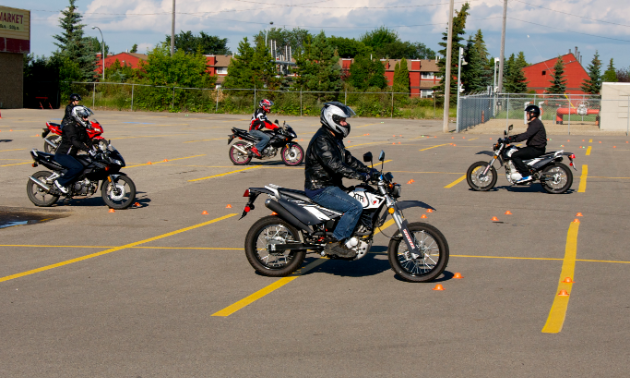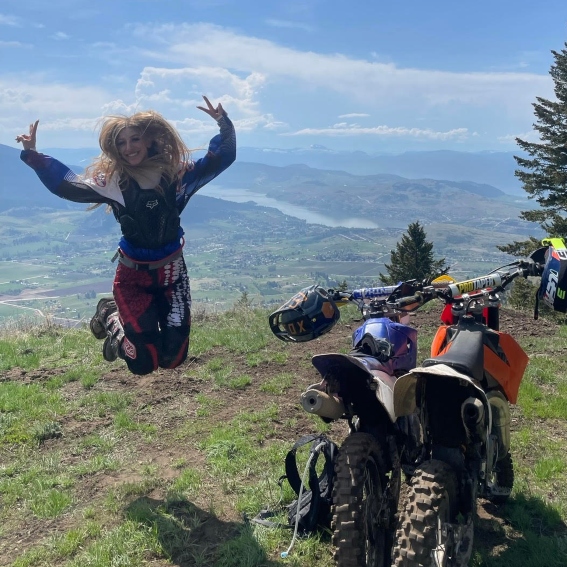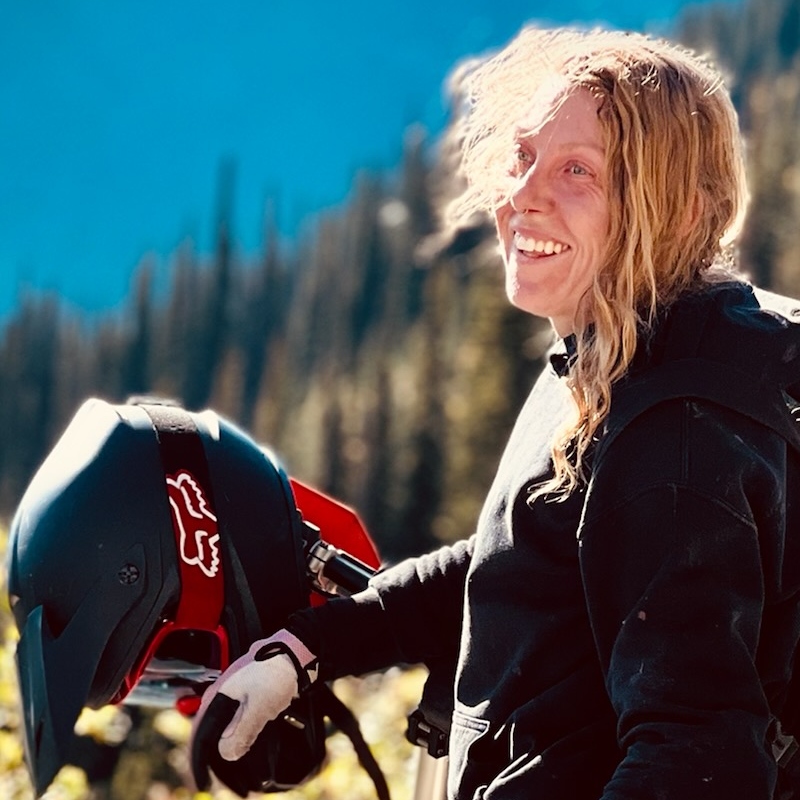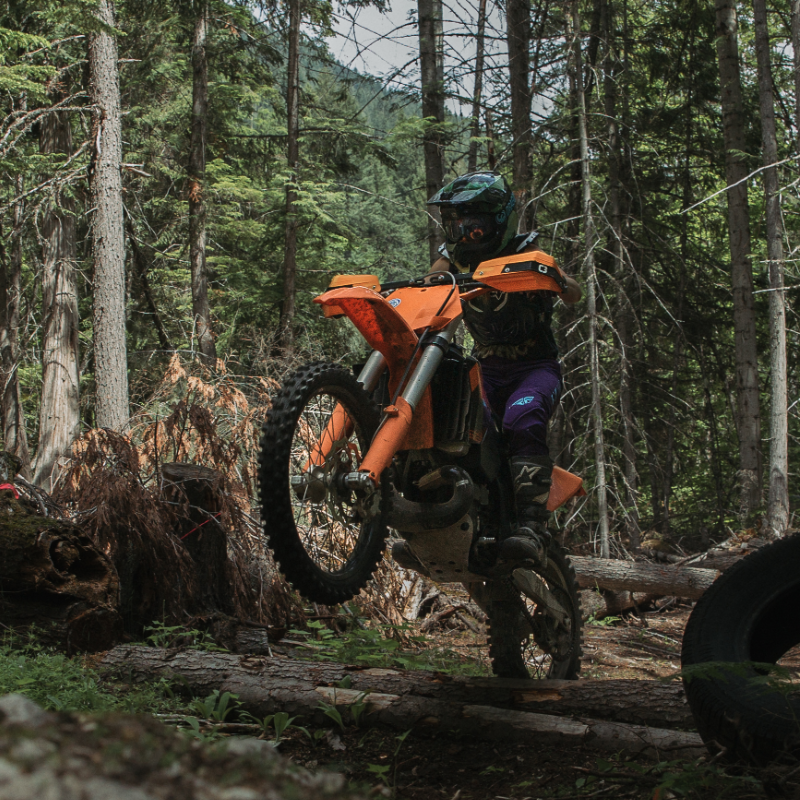When it comes to motorcycle safety, “there is no such thing as too much practice,” said Trina Hennig, the senior instructor and manager at The Edge Motorcycle Training Inc., in Edmonton, Alberta. “Even experienced riders should practise their emergency skills once in a while, because anyone can get rusty if they don’t use the skills regularly.”
Hennig is responsible for overseeing daily operations of the school, courses, student management, instructor training, management and the office. With her wealth of motorcycling experience and knowledge, she is acutely aware of what riders of all levels need to be aware of when taking their bikes on the road.
Ignorant overconfidence
The excitement that motorcycling newbies have may lead them to rush their learning process.
“A common mistake that I encounter is new riders not taking enough time to learn and develop their skills prior to putting themselves at risk on the roads, which leaves them focusing only on themselves and not on the other traffic on the road,” Hennig said. “They put themselves in situations where they are trying to learn skills to ride, learn their motorcycle and navigate traffic.
“Many times, they find themselves in an emergency situation that they don’t know how to effectively manoeuvre. Unfortunately, this leads to them panicking, many close calls, and/or crashes.”
The most efficient way to avoid mistakes is to take your time and learn from the experts in a safe, controlled environment with professional instruction. “Practice to the point that you can put your focus on your environment and what traffic is doing around you, knowing that you’ve practised the skills and drills you would need to react,” Hennig said.
How to prepare for your Alberta motorcycle skills and road tests
In Alberta, there is a written test and a road test for your Class 6 Motorcycle License. The best preparation for the written test is to study the Class 6 Handbook and refresh yourself with the Class 5 Handbook.
“Road test preparation can be done on your bike and in your car,” said Hennig. “Practice being on a road test. This will address some of the nervousness that you will experience known as test anxiety. Then practice your skill on the motorcycle, so that you ride with total control during the test. Last but not least, know the rules of the road and get to know the rules of the municipality where you will be taking your test.”
What to expect on your Alberta motorcycle road test
When you show up for your test, you will be expected to have the appropriate gear along with a fully functional, properly licensed and insured road-legal motorcycle. If you take the road test through The Edge, they will provide the motorcycle and take care of those motorcycle details for you. While on your test, you will be wearing a one-way radio to receive instructions from the examiner as they follow behind you.
Closing thoughts
Once you’ve completed your training, progress at a rate that you’re comfortable with. “Ride one-on-one with someone experienced for a while—at your pace, not theirs,” said Hennig. “Avoid group rides until you have gained some good road experience, as the close riding proximity of a group generates a new set of potential hazards and requires more precise riding.
“Be careful of the advice you follow. Everyone will offer free advice, but use common sense with it. Compare it to what you’ve learned in your course.”
The hallmarks of a good defensive motorcyclist:
- Takes the time to learn and practise skills
- Avoids unnecessary distractions
- Rides courteously
- Stays visible to surrounding traffic
- Practises situational awareness
- Scans for hazards and has a plan to avoid them
- Reacts with no or minimal panic








Comments